In times when life can feel overwhelming, a simple gesture of support can make all the difference. It's incredible how a few heartfelt words can lift spirits and show someone they're not alone. Writing a supportive letter is a thoughtful way to express your care and empathy, letting the recipient know you're there for them, no matter the circumstances. So, if you're ready to brighten someone's day with your words, read on for tips and templates to craft the perfect supportive letter!

Warm greeting and acknowledgment
A warm greeting accompanied by heartfelt acknowledgment can significantly enhance the impact of supportive gestures, especially in challenging times. Each greeting, tailored to the recipient, establishes a personal connection that conveys empathy and understanding. Phrases such as "Dear [Recipient's Name]," or "To my valued friend," express warmth and familiarity. Acknowledging specific challenges faced by the recipient, such as recent loss, health struggles, or professional setbacks, demonstrates attentiveness and awareness. Including thoughtful phrases like "I recognize how difficult this time has been for you" or "Your strength has always inspired me" adds genuine support. Such expressions form a meaningful foundation for deeper engagement and assistance.
Expression of empathy and understanding
In times of hardship, such as personal loss or emotional distress, offering comfort can be invaluable. A warm message, expressing understanding and empathy, can provide significant solace. It is essential to acknowledge the situation, reflecting on how challenging these moments can be for the individual. Sharing experiences or sentiments can create a stronger bond. A simple phrase like "I am here for you" conveys support. Including an offer for assistance, like running errands or sharing a quiet moment, enhances the gesture. Encouragement to express feelings can also foster connection, making the recipient feel less isolated in their struggle. Ultimately, sincerity is key in any supportive gesture, reinforcing the sentiment that they are not alone in their journey.
Offer specific assistance or support
When dealing with difficult situations, offering specific assistance or support can significantly benefit the recipient's emotional state. Practical solutions, such as providing meals or helping with household chores, can alleviate stress during challenging times. Additionally, offering transportation services ensures access to essential appointments, especially in urban areas like New York City, where public transport can be daunting. Emotional support can also be pivotal; making regular check-in phone calls, arranging coffee meet-ups, or simply being present can provide the reassurance needed to navigate tough moments. Tailoring gestures to individual circumstances ensures that the support is both meaningful and impactful.
Encourage open communication
Open communication is crucial in building strong relationships, whether personal or professional. Encouraging individuals to express their thoughts and feelings promotes trust and understanding. Regular check-ins, feedback sessions, and the creation of safe spaces for dialogue can enhance this process. Initiatives like team meetings or informal gatherings, such as monthly coffee chats, foster an environment where everyone feels valued. Organizations that prioritize transparent communication often see improved morale and collaboration. Additionally, using tools such as suggestion boxes or anonymous surveys can give voice to those who may hesitate to speak up. Ultimately, nurturing open dialogue leads to more resilient connections and a supportive community.
Positive closing and contact information
In moments of challenge, a supportive gesture can greatly uplift others, especially in personal relationships or professional connections. A heartfelt note can create a sense of warmth and reassurance. Including positive phrases like "I believe in you" or "You are not alone" can enhance the impact. Providing contact information ensures a direct line for further communication, promoting a lasting sense of support. For instance, one might include their email address or phone number, inviting the recipient to reach out if they need assistance or simply wish to talk. Such an approach fosters a nurturing atmosphere, strengthening bonds during difficult times.

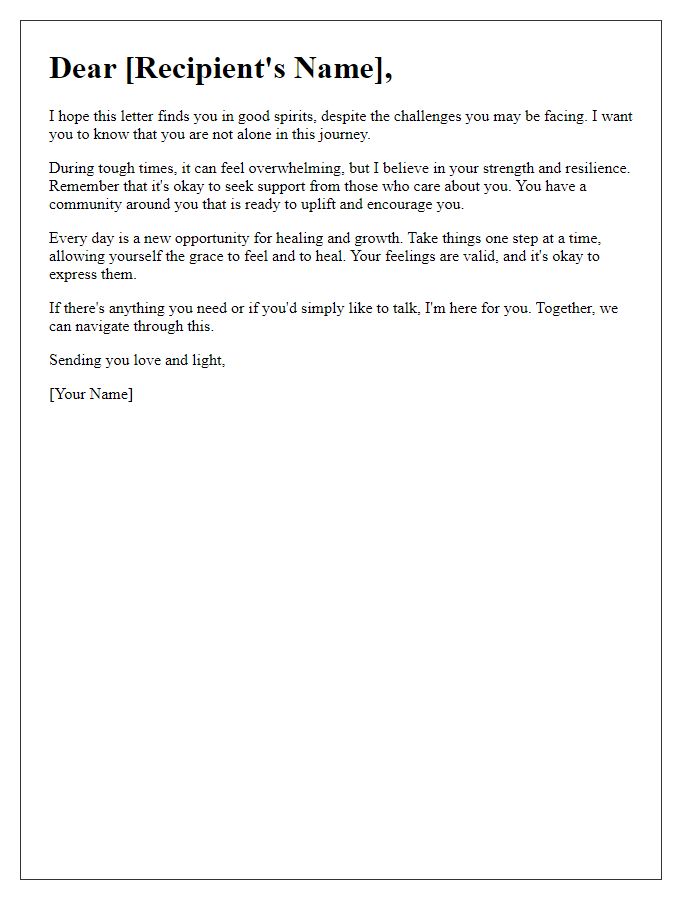

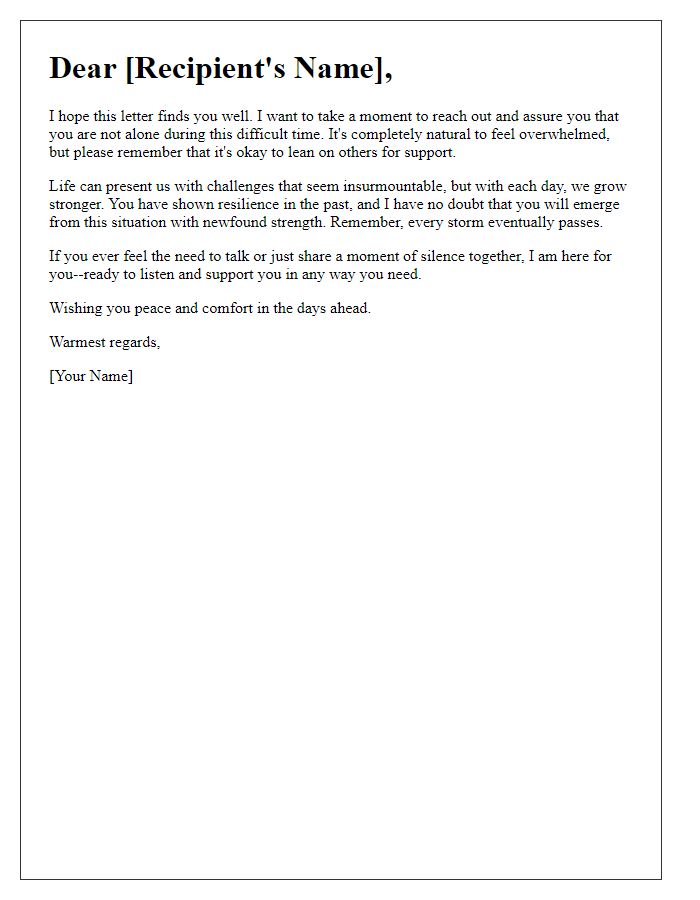
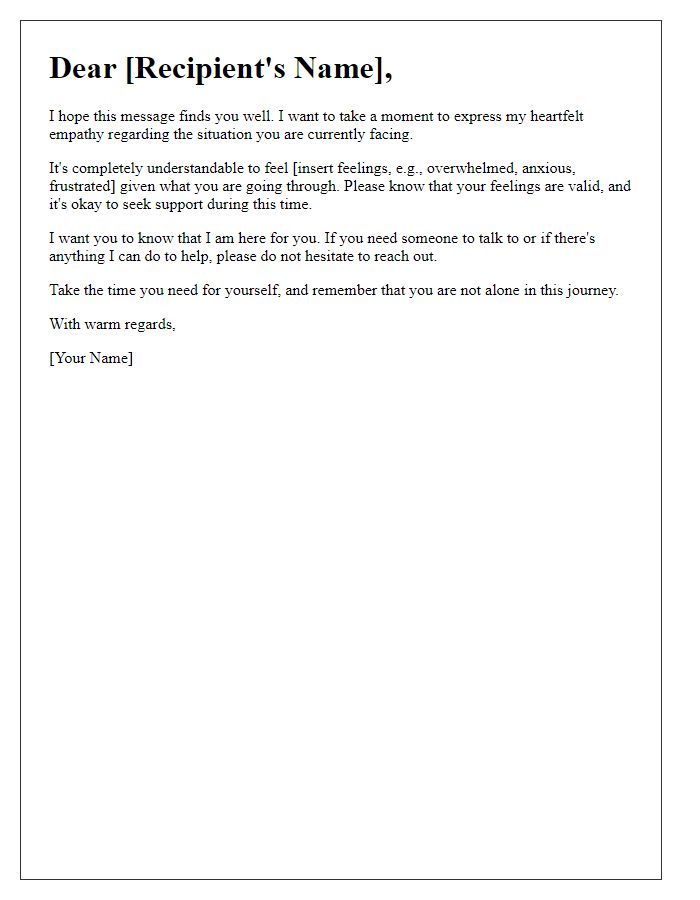
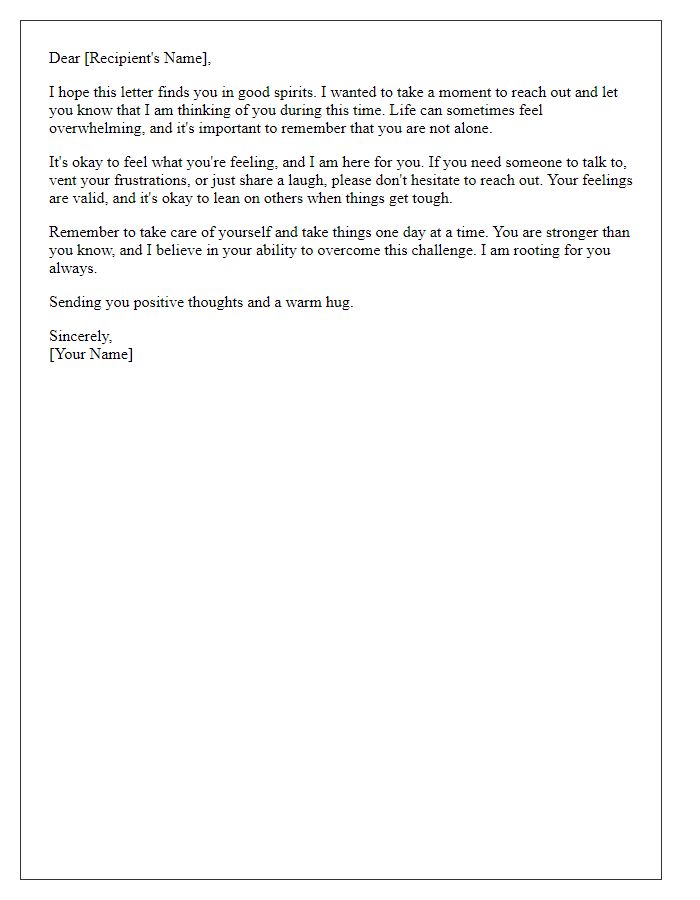
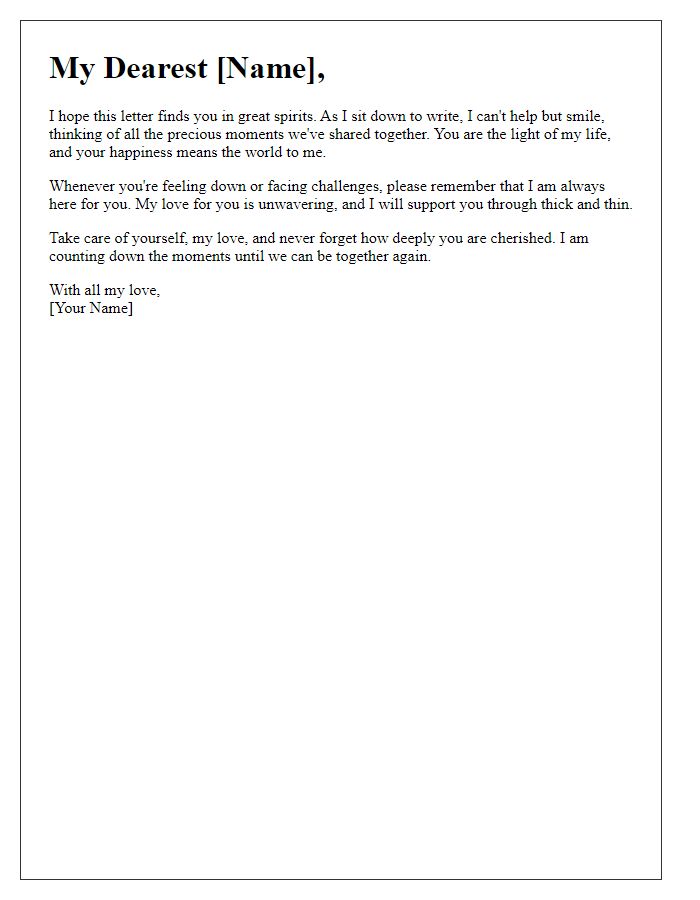
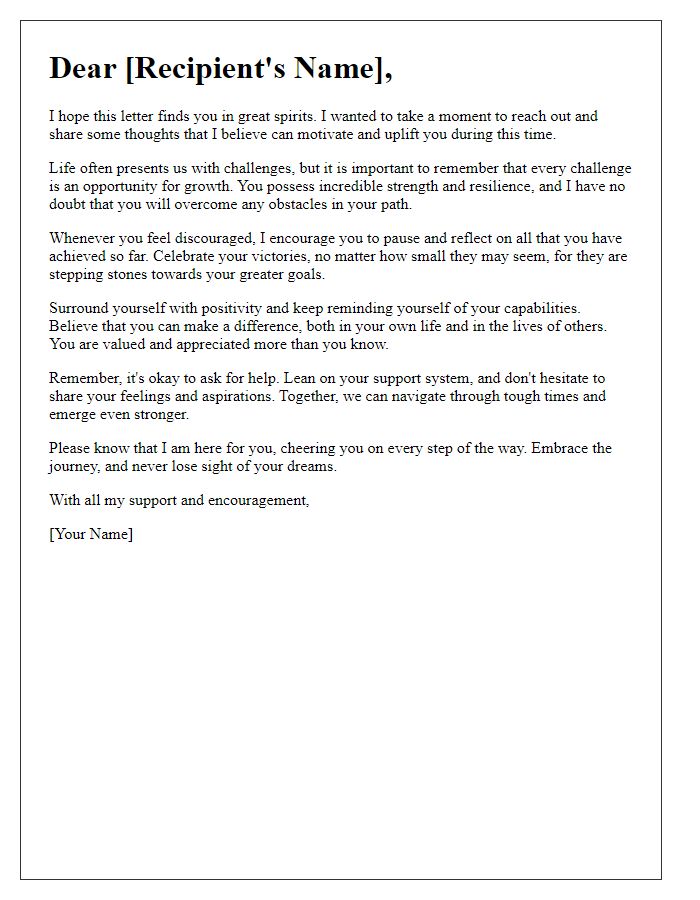
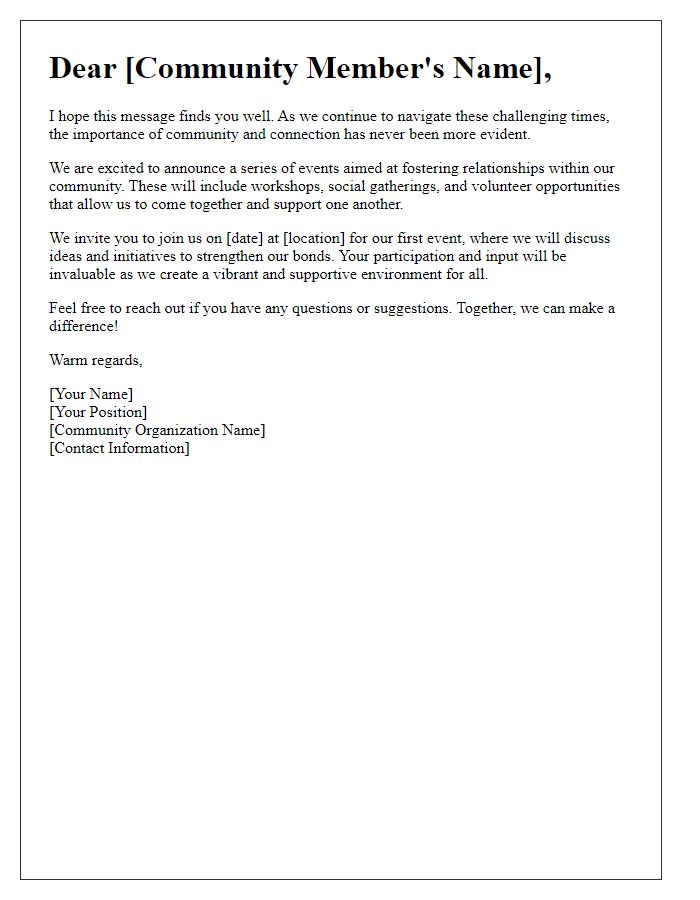
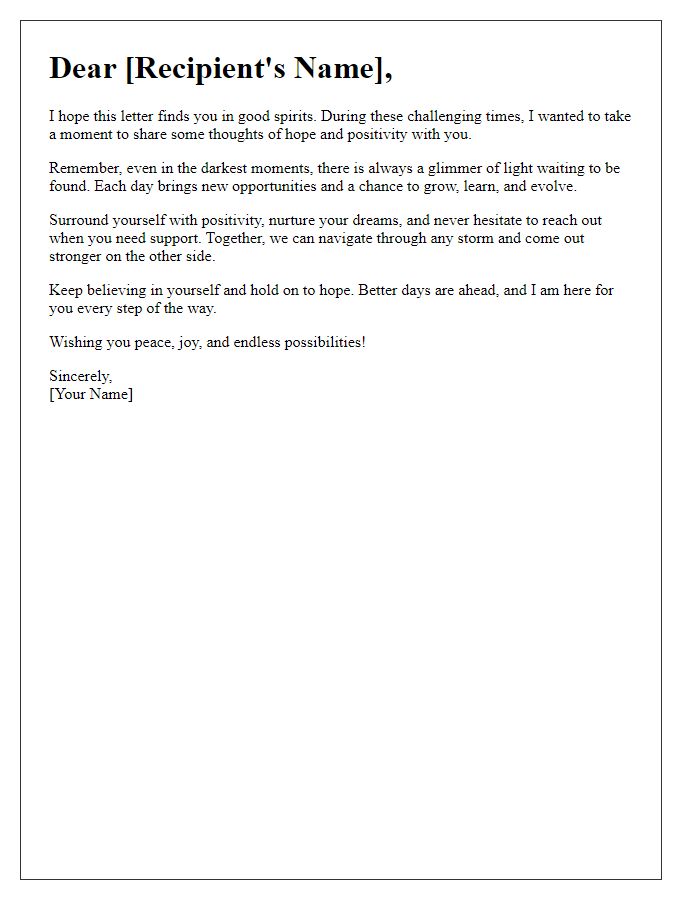
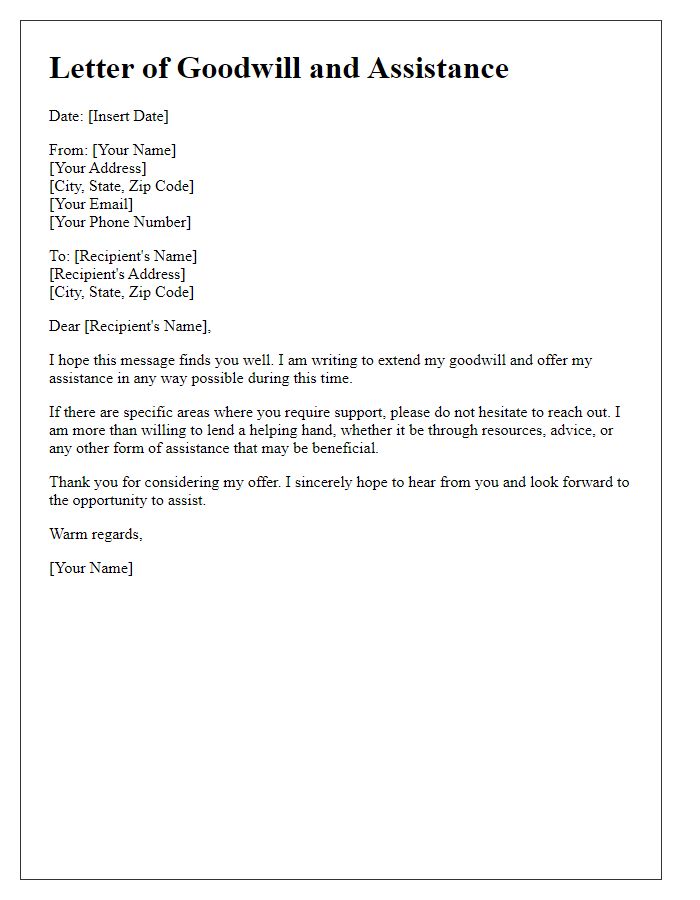


Comments